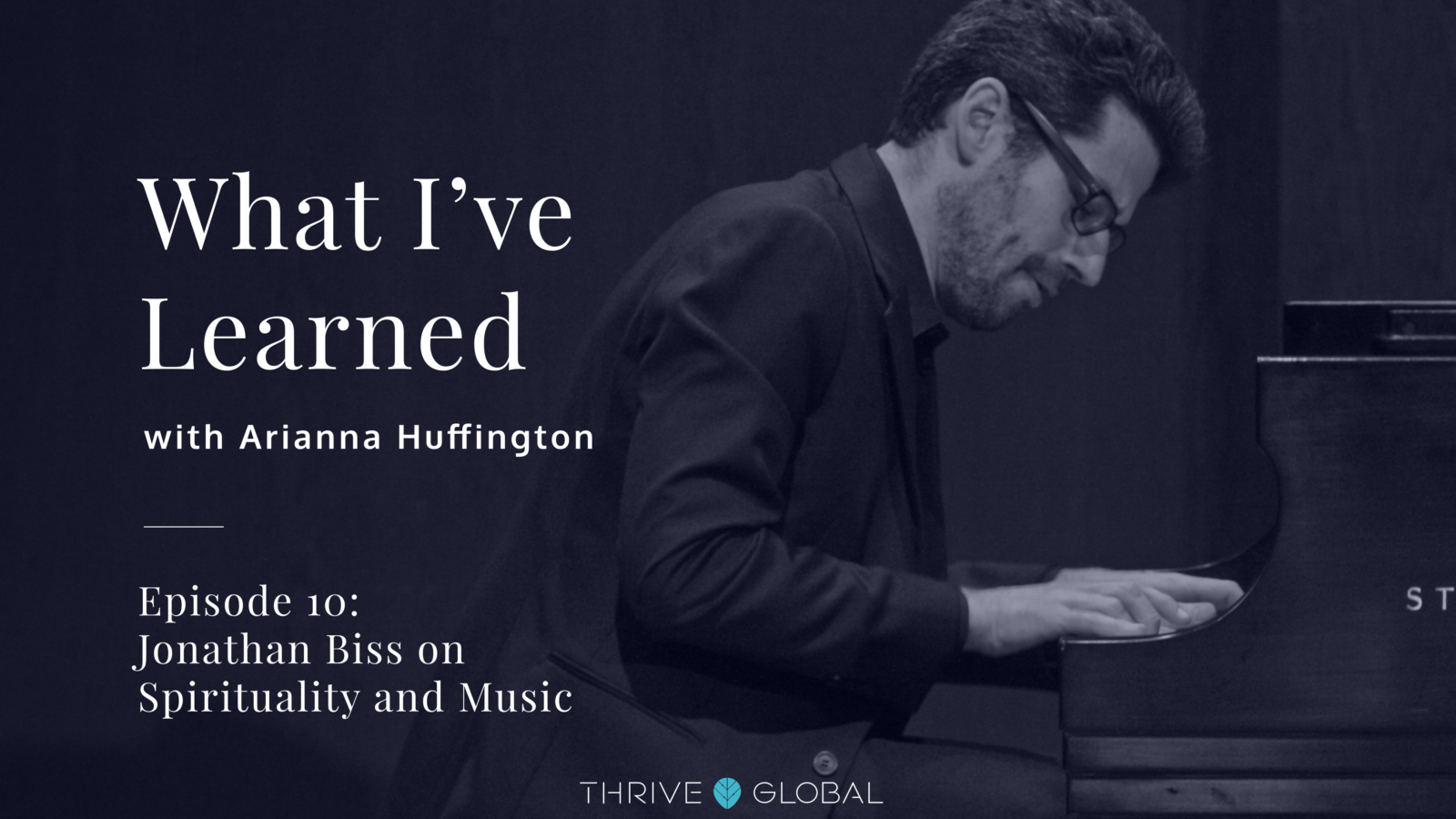In the “What I’ve Learned” podcast, Arianna Huffington sits down with people she loves and admires, in fields from music and technology to sports and business, to explore the lessons they’ve learned over the extraordinary past year about themselves, their lives, and what they truly value.
This week, world-renowned pianist Jonathan Biss on music, spirituality, and how the pandemic forced him to slow down, be in the moment, and deal with his anxiety.
On connecting with his spiritual side through Beethoven:
“Just about two weeks after the pandemic started, I was supposed to play a concert in New York with the last three Beethoven sonatas. And they asked me to play it from my living room. I didn’t even have a decent microphone at that point. On an iPhone, I recorded the last three Beethoven sonatas — some of the most profound and most mysterious utterances that I think humanity has produced. I don’t know that I’ve ever felt more connected to the spiritual, whatever that means, than I was in those moments. Whatever God is to me, it’s in these pieces.”
On how the pandemic forced him to be in the moment:
“During the pandemic where, of course, I played very few concerts, I have tried hard to let go of the routine I used to have, which I think approached a sort of obsessive compulsive situation where, if I hadn’t slept as much, and also this many hours, before the concert — and I basically don’t eat before the concert because I don’t like to feel full — I found that when I got too much into that, it was an impediment to letting go. One of the lessons of the pandemic is that if I actually accept the conditions of the day, you know, how I feel on that day, the piano I’m playing that day — which is always a different one, and usually it’s not an ideal one — I leave myself more space to be in the moment.”
On taking the lessons of the pandemic with him into the future:
“Thank heavens that touring life is starting slowly to come back. And as the challenge was accepting the anxiety and accepting the pandemic, I have to also accept that some of the old habits will rear their ugly heads. I think that for me, the problem will start when I immediately become angry at myself or start to judge myself for going back to thinking negatively, or to being worried. Just acknowledging that those things will happen — they happen for very complicated reasons I probably will never be able to understand — but just to acknowledge them, I think if I am able to do that, then the lessons will not simply evaporate.”
To hear more from Jonathan, listen to this full episode of “What I’ve Learned,” available wherever you get your podcasts.


